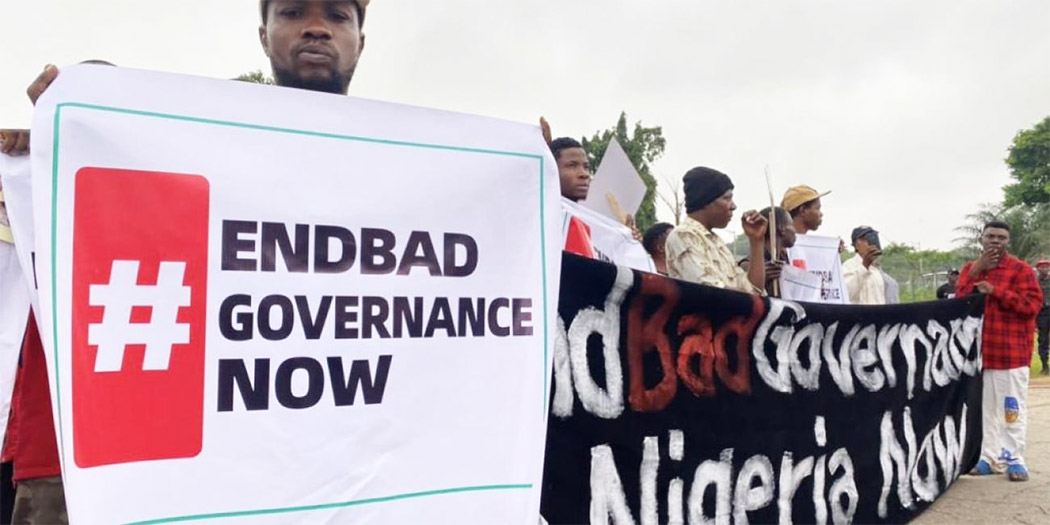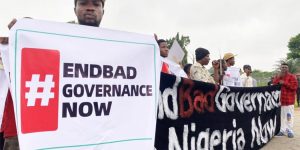
POLICE REFUTE CLAIMS OF KILLING HUNGER PROTESTERS, DEMAND APOLOGY FROM AMNESTY.

The Nigeria Police Force has dismissed allegations made by Amnesty International in its report titled “Bloody August: Nigeria Government’s Violent Crackdown on #EndBadGovernance Protests,” describing the claims as false, misleading, and damaging to the image of the Force.
At least 24 individuals were killed during the August 1–10 #hunger protests in six northern states, according to a study published on November 28, 2024, accusing the police of unlawful killings.
The police, however, have denied these accusations, claiming that their research contradicts those made by Amnesty International.
Speaking at a news briefing on the subject on Sunday, Force spokeswoman Muyiwa Adejobi stated that a special investigative panel had been established to confirm the allegations.
He went on to say that the panel carried out in-depth investigations and produced a thorough report outlining the errors in Amnesty International’s claims in coordination with the Commissioners of Police from the impacted states.
“Amnesty International is advised to have retrospection on its frequently false reporting on Nigerian’s Law Enforcement activities and reflect on its reporting methodology by ensuring that its reports are accurate and contain a true and fair expression of events that touch on national security and safety of all Nigerians. Accurate reporting of facts is key to the integrity and character of every international organisation and Amnesty International should not be an exception,” Adejobi added.
He also said the police would write to demand a retraction of the report as well as a public apology for the alleged inaccuracies.
Adejobi said, “The Nigeria Police Force will in due time be writing the Amnesty International to demand a retraction of this report from the public space and with a public apology. The Nigeria Police Force remains resolute in protecting the rights of all citizens while ensuring the security and stability of the nation. We, therefore, urge the public to be wary of sensational reports designed to incite mistrust and weaken confidence in law enforcement institutions.”
Reeling out the police findings in Borno, Adejobi said the police didn’t use grenades as claimed by the organisation.
He said, “In Borno State, it was established that the protesters were violent, engaging in widespread looting, pillaging, and wanton destruction of public and private property. For example, the Skill Acquisition Centre of the United Nations High Commission for Refugees was looted and vandalised. The warehouse of the World Food Programme, located on Baga/Maimalari Barracks Road, Maiduguri, was also looted, with several items belonging to the international organisation destroyed and stolen by some of the protesters.
“Therefore, the claims by Amnesty International that the police threw a hand grenade from a convoy of vehicles into a filling station, killing three persons is a blatant falsehood and leaves right-thinking members of the society dismayed at this reported falsehood by an international agency which ought to act in accordance with international norms and standard of fair and honest reporting of human rights violations in the country.”
Adejobi stated that the police findings in Niger State refuted the allegation that three people were shot dead in Suleja.
According to Adejobi, local sources verified that there was no occurrence of the purported killing of a 21-year-old in Katsina, and the claim was also proven to be unfounded.
Adejobi added that, in contrast to Amnesty International’s report, there were no protests or police killings in Kaduna State on October 1, 2024.
Instead, he added, an incident involving the Nigerian Army was found and thoroughly examined.
According to Adejobi, police investigations showed no such killings, despite Amnesty International reporting the deaths of two women and a man during protests in Jigawa. The evidence also suggested that the lone fatality was caused by protester violence rather than police action.
According to Adejobi, the report claimed that 12 people had died in Kano as a result of police actions; however, investigations showed that the deaths were caused by violent altercations between criminals and looters rather than by police activity.
![]()
